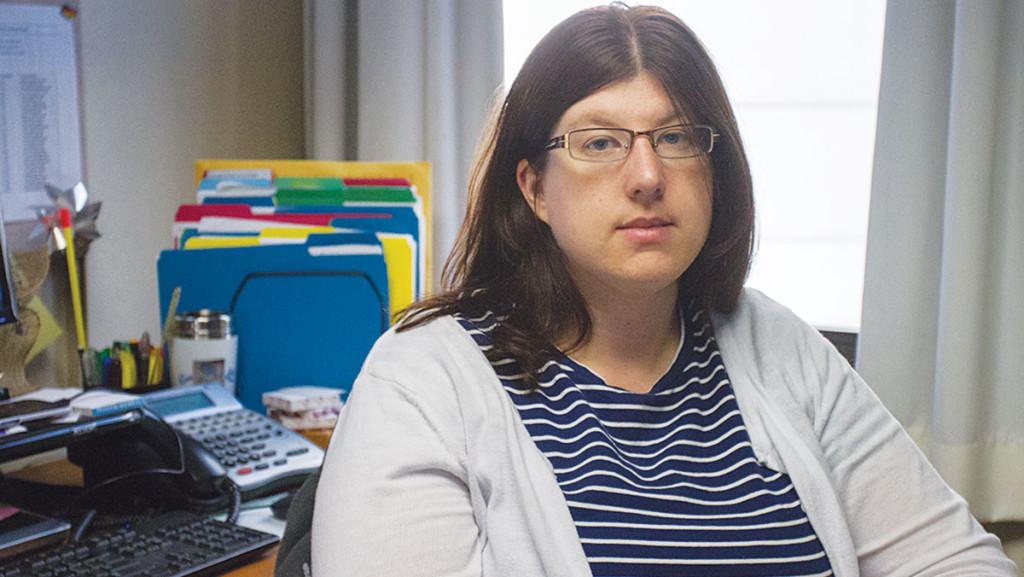The report of two rapes, which took place between August and October 2015 and appeared in the Feb. 4 Public Safety Log, has brought increased attention to Ithaca College’s policies for victims of sexual assault and harassment.
A rape was reported in August 2015, and another was reported in October 2015. According to the log, the Office of Title IX, which receives complaints of sexual harassment, sexual assault and discrimination, reported for documentation purposes that a sexual assault occurred between “two known people,” in both cases. For both reports, the “complainant did not report the incident to Public Safety.”
Victims of sexual assault and harassment can seek help from the Office of Public Safety and Emergency Management, the Title IX office or local police. All three departments carry out their own independent investigations on the alleged incident.
If told of a sexual assault, faculty, staff and resident assistants are required to report to Tiffani Ziemann, Title IX coordinator. The only places on campus where a student can report a sexual assault without further reporting are the chaplains, the Hammond Health Center and the Center for Counseling and Psychological Services.
When a student goes to the Title IX office to report an incident of sexual assault or harassment, they are not required to file an official complaint at the college, Ziemann said. Furthermore, if the Title IX office learns of an incident from a third party, the office will reach out to the victim, but the victim is not forced to respond and seek further action.
If a victim chooses to report the incident, Public Safety handles the legal aspects of a case, whereas Title IX deals with the Office of Judicial Affairs or Human Resources when reported through its office.
The only reporting to Public Safety that Title IX is required to do is statistical reporting. However, Public Safety does not pursue an investigation.
The reports of sexual harassment and assaults on campus are increasing due to student, staff and faculty awareness, Ziemann said. This does not mean that the incidents themselves are increasing.
“This year, I’ve gotten upwards of 20 complaints, and I would say about six to eight of those are what we would classify as assaults,” Ziemann said.
If a student does not wish to seek formal action, the Title IX office helps support the victim. This includes changing the classroom environment for the victim or helping them receive education and resources for comfort, Ziemann said.
Another community resource that Public Safety and Title IX often refer students to is the Advocacy Center, a Tompkins County resource that provides medical services, counseling through legal processes, 24–hour support through its hotline and other victim support services. The Advocacy Center is confidential and does not have the same reporting requirements as Public Safety and Title IX.
Heather Campbell, executive director of the Advocacy Center, said the Advocacy Center works with the college to train the Office of Residential Life staff and resident assistants about connecting students with services for support or to report their case.
“We try to connect with the people and places on campus that students are likely to go,” Campbell said. “We are really depending on the professionals in those roles to remember to make that referral.”
Campbell said that in May, the center will be receiving additional funding from the state to fund personnel who will work at the college to strengthen access to the center’s resources.
If a student wishes to seek action, Ziemann said, the Title IX office will start an investigation into the incident. Out of all of these reports, Ziemann said only about a dozen students have responded to her efforts to contact them.
Thomas Dunn, investigator of Patrol and Security Services, said there are two ways in which an incident of assault or harassment can be investigated. One way is a violation of the college’s Student Conduct Code, and the other is a violation of the law.
“Sexual discrimination and sexual harassment may not violate the law, versus a sexual assault, which is clearly a violation of New York state law,” Dunn said.
Under state law, forcible touching and rape are considered sex crimes. Dunn said Public Safety will generally receive six reports of sexual assault each year. In 2010, it received two reports; in 2011, there were eight; in 2012, six were reported. In 2013, three were reported, and 2014 saw the highest number reported in the last five years: nine reports.
“It’s not representative of what’s occurring — it’s just what’s being reported,” Dunn said. “We believe that the statistics are probably much higher.”
Agreeing with Ziemann and Dunn, Campbell said increased rates of reported sexual assault do not mean increased occurrences, but could indicate better education and emphasis on support for sexual assault.
“In some ways, this is what we expected,” Campbell said. “There has been so much focus on college campuses and … emphasis on the federal and state level on improving their response to victims and improving their education.”
Assistant News Editor Sophia Tulp contributed reporting to this article








